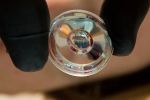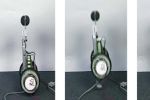Drinking Adds to Cancer Risk
Australian men who drink alcohol should reduce their cancer risk by adhering to new National Health and Medical Research Council (NHMRC) guidelines and limit their daily intake to no more than two standard drinks, according to Cancer Council Australia.
Commenting on the NHMRC’s new Australian alcohol guidelines for low-risk drinking, Cancer Council Australia’s Chief Executive Officer, Professor Ian Olver, said adhering to the new guidelines, which halved the recommendation for men in the previous guidelines, would significantly reduce cancer risk.
“More than 2800 Australians are diagnosed with alcohol-related cancers each year and around 1400 die as a result,” Professor Olver said. “Any alcohol consumption carries some cancer risk, and the more you drink the higher the risk. Alcohol may seem an accepted part of Australian cultural life, but people need to know that drinking incurs a significant cancer risk. Moderating consumption means moderating risk.”
Professor Olver said alcohol increased the risk of cancers of the mouth, throat, oesophagus, bowel, liver and female breast. There was no evidence of alcohol consumption having a protective effect against any cancer.
He said halving the recommended daily limit from four drinks to two for Australian men should send a message that drinking can cause serious short and long-term harm. The authority of the NHMRC, Australia's peak government body for developing health advice, would hopefully persuade men who drank to limit their alcohol consumption.
“While Cancer Council Australia would have preferred the recommended daily limit for women to have been reduced from two standard drinks to one, the guidelines are a big step in the right direction,” Professor Olver said.
“Alcohol consumption can significantly raise cancer risk in women, as it is an important cause of breast cancer in women of all ages and can also increase breast cancer risk in postmenopausal women by leading to weight gain. Women need to be particularly cautious about their intake.”
Professor Olver said the guidelines were for guidance only and that alcohol-free days would also reduce risk.
He said the guidelines’ aim of fostering an informed approach to countering Australia’s harmful drinking culture was consistent with the Government’s proposed “alcopops” tax, which had been shown to reduce net alcohol consumption.
Story from ScienceAlert.com.au
2 Comments
Popular Tags
SciTech
Regular Features

Featured
SciTech
Science Confirms the Obvious 2008
The findings may be no-brainers (yes, you do get sick in winter), but these studies uncover hidden truths in conventional wisdomBuilding the Real Iron Man
While audiences flood theaters this month to see the comic-book-inspired Iron Man, a real-life mad genius toils in a secret mountain lab to make the mechanical superhuman more than just a fantasy with the XOS Exoskeleton
Popular on Popsci
Most Viewed
Most Commented
SciTech
- Can People Safely Eat Cat Food?
- Drinking Adds to Cancer Risk
- Friday You Tube Hit: The Most Amazing Miss Ever!
- R U Down Wiv Txt Slang?
- The Periodic Table: Older Than It's Ever Been
- Energy Drinks Kill Our Buzz
- Diet Cola, Mentos and Two Idiots Dressed as Scientists
- The Photons Are Coming!
- Playful Kids Grow Up Active
- Future Journos Boycott Newspapers









Comments
I saw a story on the Channel 9 news last week in the morning. They said that up to and more than 15 standard drinks a week in a woman increases her chance of developing some form of cancer by more than 15%.
I was talking with some friends in class about this though, and most of them had the mindset that 'everything causes cancer these days, so you may as well enjoy life the same'. Which is true in a sense. It seems that every week a new study reveals something we've taken for granted it causing cancer or increasing our risk of developing it.
When someone conducts a study on something that ACTIVELY REDUCES your chance of cancer, I shall happily name my first born child after them. Even if they have a strange name like Spork or Austral (real names I've seen, no joke)
0 out of 0 people found this comment helpfulBe careful what you wish for there Major, cause that kid could be one disturbed child when he grows up :P
This whole drinking and cancer thing has been in the air for a long time now. Its only become more in your face since the binge drinking problem and the rise in hospital costs associated with alcohol related incidents (drink driving, violence, and just plain stupidity like jumping off walls). Telling people to drink less won't stop it, neither will increasing the tax on alcopops - people will simply switch to the harder stuff. I think that there is no optimum solution to this problem, other than prohibition. But even with that, people will find a way around and the problem will still be there...
0 out of 0 people found this comment helpful